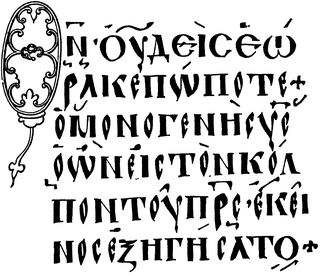Chrysostom: "That He might not seem however to give His testimony from any motive of friendship or kindred, in consequence of his being related to our Lord according to the flesh, he says, I knew Him not. John could not of course know Him, having lived in the desert. And the miraculous events of Christ’s childhood, the journey of the Magi, and such like, were now a long time past; John having been quite an infant, when they happened. And throughout the whole of the interval, He had been absolutely unknown: insomuch that John proceeds, But that He should be made manifest to Israel, therefore am I come baptizing with water. And hence it is clear that the miracles said to have been performed by Christ in His childhood, are false and fictitious. For if Jesus had performed miracles at this early age, he would not have been unknown to John, nor would the multitude have wanted a teacher to point Him out. Christ Himself then did not want baptism; nor was that washing for any other reason, than to give a sign beforehand of faith in Christ. For John saith not, in order to change men, and deliver from sin, but, that he should be made manifest in Israel, have I come baptizing. But would it not have been lawful for him to preach, and bring crowds together, without baptizing? Yes: but this was the easier way, for he would not have collected such numbers, had he preached without baptizing."
Augustine: "Now when our Lord became known, it was unnecessary to prepare a way for Him; for to those who knew Him, He became His own way. And therefore John’s baptism did not last long, but only so long as to show our Lord’s humility. . Our Lord received baptism from a servant, in order to give us such a lesson of humility as might prepare us for receiving the grace of baptism. And that the servant’s baptism might not be set before the Lord’s, others were baptized with it; who after receiving it, had to receive our Lord’s baptism: whereas those who first received our Lord’s baptism, did not receive the servant’s after."
This page is based on this
Wikipedia article Text is available under the
CC BY-SA 4.0 license; additional terms may apply.
Images, videos and audio are available under their respective licenses.












